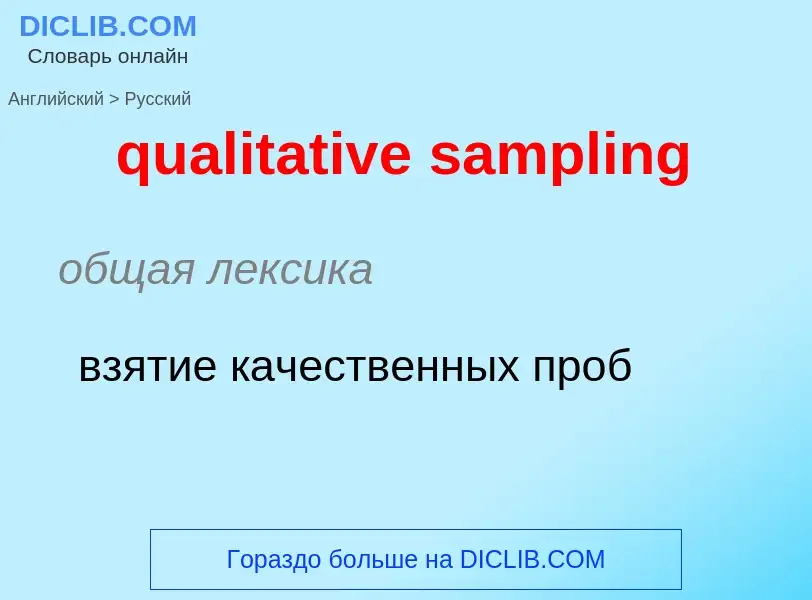Μετάφραση και ανάλυση λέξεων από τεχνητή νοημοσύνη
Σε αυτήν τη σελίδα μπορείτε να λάβετε μια λεπτομερή ανάλυση μιας λέξης ή μιας φράσης, η οποία δημιουργήθηκε χρησιμοποιώντας το ChatGPT, την καλύτερη τεχνολογία τεχνητής νοημοσύνης μέχρι σήμερα:
- πώς χρησιμοποιείται η λέξη
- συχνότητα χρήσης
- χρησιμοποιείται πιο συχνά στον προφορικό ή γραπτό λόγο
- επιλογές μετάφρασης λέξεων
- παραδείγματα χρήσης (πολλές φράσεις με μετάφραση)
- ετυμολογία
qualitative sampling - translation to ρωσικά
общая лексика
взятие качественных проб
медицина
качественное исследование
общая лексика
качественный метод
Ορισμός
Βικιπαίδεια
Qualitative research is a type of research that aims to gather and analyse non-numerical (descriptive) data in order to gain an understanding of individuals' social reality, including understanding their attitudes, beliefs, and motivation. This type of research typically involves in-depth interviews, focus groups, or observations in order to collect data that is rich in detail and context. Qualitative research is often used to explore complex phenomena or to gain insight into people's experiences and perspectives on a particular topic. It is particularly useful when researchers want to understand the meaning that people attach to their experiences or when they want to uncover the underlying reasons for people's behavior. Qualitative methods include ethnography, grounded theory, discourse analysis, and interpretative phenomenological analysis. Qualitative research methods have been used in sociology, anthropology, political science, psychology, social work, folklore, educational research and software engineering research.

![A screenshot of a user coding text on [[NVivo]]. A screenshot of a user coding text on [[NVivo]].](https://commons.wikimedia.org/wiki/Special:FilePath/NVivo-9-screenshot.jpg?width=200)
